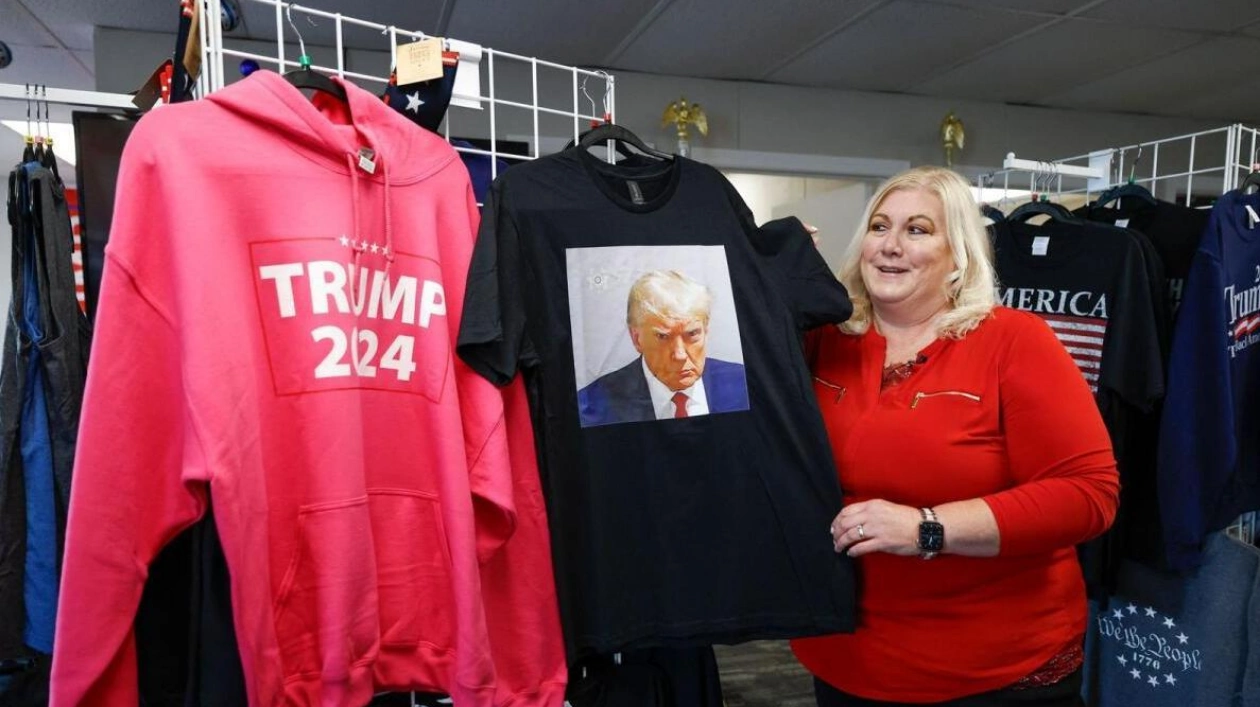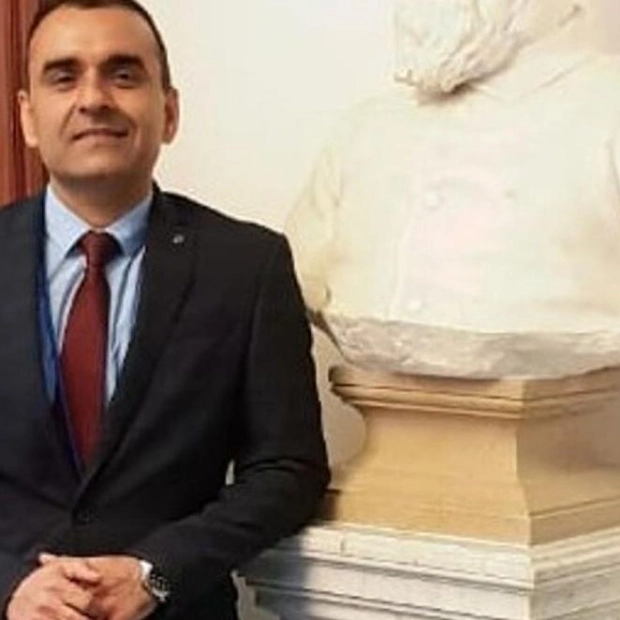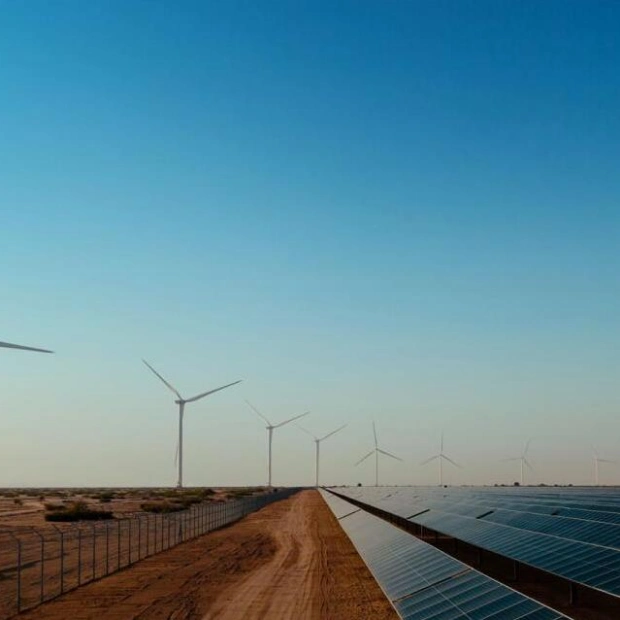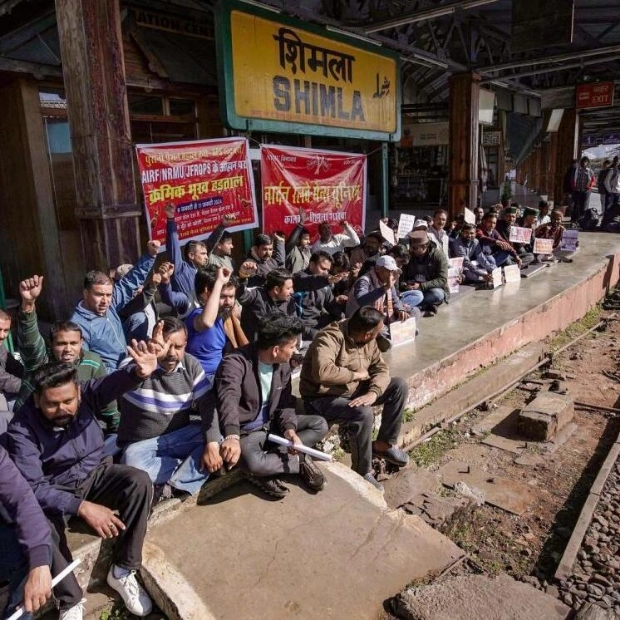Michael Hovde harbors numerous reservations about Donald Trump's policy agenda. However, when he casts his vote in November in the pivotal state of Wisconsin, he perceives the stakes as transcending mere policy matters. "Trump, in my view, poses an existential threat to democracy," the 36-year-old remarked while walking through the lively downtown of Appleton, a locale renowned for its political diversity within one of the most evenly split US states. He cited the "alarming" figures surrounding the Republican tycoon and Project 2025, a governance plan drafted for, yet publicly disowned by, Trump, which would enforce his far-right policies. "Their goal is to effectively bypass and undermine checks and balances, and truly diminish the effectiveness of our political system," Hovde explained.
Nearby, amidst the lush lawns and stately Victorian homes of this solidly middle-class city, Casey Stern, 58, views the contest between Trump and Vice-President Kamala Harris quite differently. Above his meticulously maintained garden of corn and zucchini flutters a prominent "Trump 2024" flag. Another banner demands Biden's impeachment and declares, "We the People Are Pissed." If the message is confrontational, so are the responses. Stern recounts passers-by hurling insults, while some adversaries note his address and mail him letters. He conceded that Trump's "harsh tweets in the dead of night" might irk people but argues that the nation requires a "strong-willed" leader to tackle inflation, immigration, and crime. "Every time you visit the grocery store, you can't even afford a steak," Stern noted. He dismissed Democrats' accusations that Trump endangers democracy, accusing President Joe Biden of stifling public discourse over the Covid-19 pandemic. "Biden has done more to harm democracy," he asserted.
If there is one state where the Democrats' warning about Trump's threat to democracy might galvanize voters, it is Wisconsin. Once celebrated for its clean, courteous, left-leaning politics, Wisconsin has transformed into a hub of partisanship—an ultimate swing state capable of swaying the national election. Trump shocked complacent Democrats by narrowly winning in 2016. Biden then recaptured Wisconsin by a similarly slim margin in 2020. A pivotal moment arrived in 2010 when Scott Walker, a young Republican many believed would honor Wisconsin's genteel political tradition, was elected governor and initiated sweeping reforms. He curtailed the power of Wisconsin's once-formidable labor unions, and his Republicans drastically redrew election maps, virtually ensuring party control of the state legislature. Democrats anticipate that Republicans will face retribution in the November 5 election, fought on less partisan maps following a ruling by the state Supreme Court's new liberal majority. Kristin Alfheim, a Democrat vying for a state Senate seat, believes competitive maps benefit democracy. "It creates the opportunity for accountability from both sides, knowing they'll need to collaborate," she stated. Biden and Harris have relentlessly emphasized the threat to democracy posed by Trump, who refused to concede defeat in 2020 and incited supporters who stormed the Capitol on January 6, 2021. Arnold Shober, a government professor at Lawrence University in Appleton, noted that the democracy theme holds "special significance" in Wisconsin following its experience with Walker, who was ousted in 2018. However, Shober pointed out that the issue is divisive, with some Republicans still resentful over the lively, though nonviolent, protests that disrupted the state's capitol when Walker enacted his anti-union measure, known as Act 10. "When you mention January 6 in Wisconsin, those on the right will immediately counter, well, what about those Democrats with Act 10?" Shober explained. "They view it almost as an equity issue. You did it—we can do it too."
The historic home to major paper mills and now the headquarters for significant white-collar employers, Outagamie County, of which Appleton is the seat, was long dominated by Republicans and produced the infamous anti-communist crusader Joe McCarthy. Yet, mirroring the nation, an urban-rural divide has intensified, with Democrats gaining ground in an increasingly cosmopolitan Appleton. Outagamie County chief executive Tom Nelson, a Democrat sympathetic to socialist Bernie Sanders, has maintained his winning streak since 2011, even as he has witnessed the coarsening of politics under Trump. "He has fueled that vitriol, that disdain, that hatred," Nelson said. Nonetheless, Nelson stated that he has successfully bridged the divide with a more fundamental message. Fundamentally, he believes people desire "to reside in a community that is safe, healthy, and boasts a robust and dynamic economy."






